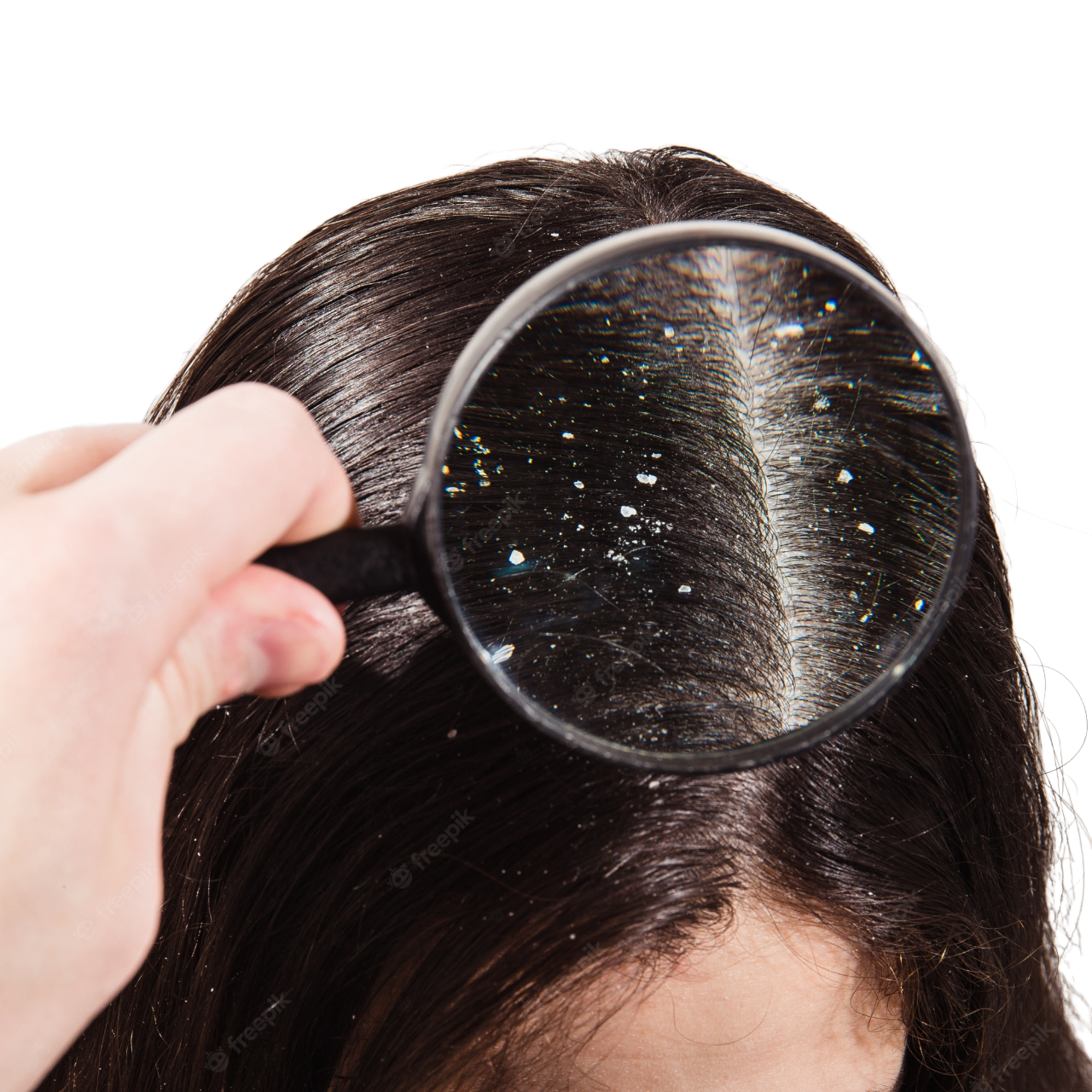Dandruff Treatment in Rajkot
Dandruff is mainly characterized by yellowish or white flakes, with or without itching over the scalp.
Exfoliation of skin is a normal procedure. And if your skin is very oily, there is a chance that dead skin gets trapped on your skin for a long time, causing fungus to grow in that region, thus taking the form of dandruff.
Although it is a frustrating hair condition due to its recurrence, but it can be managed effectively with proper guidance and treatment from a qualifed dermatologist.
The most common age for dandruff is between 12 to 30 years.
It can also be seen in infants (<1 year age child).
The exact cause of dandruff is not fully understood, but it is thought to be related to a number of factors, including:
-
Dry skin: When the scalp is dry, it can produce more skin cells than normal, which can lead to flaking and itching.
-
Yeast: A type of fungus called Malassezia can live on the scalp and feed on the oils produced by hair follicles. This can cause an overgrowth of the fungus, leading to itching and flaking.
-
Sensitivity to hair care products: Some individuals may be sensitive to certain hair care products, such as shampoos, conditioners, or styling products, which can lead to dandruff.
-
Medical conditions: Certain medical conditions, such as psoriasis, eczema, and seborrheic dermatitis, can cause dandruff symptoms.
-
Stress: high levels of stress can cause an increase in the production of oil on the scalp which can lead to dandruff.
-
Not shampooing enough: Not shampooing your hair often enough can cause oils and skin cells to build up on the scalp, leading to dandruff.
It's worth noting that the causes of dandruff can vary from person to person, and it is not always easy to identify the underlying cause.
Mild form of dandruff can never result in causing your hair loss.
But yes, if the fungal infection gets zoned on your scalp area resulting in itching, redness, and scratching, then you might witness hair loss that definitely requires proper attention.
In such a scenario, it is recommended to consult a MD dermatologist for getting a professional assistance. Otherwise, the situation might turn ugly, hampering your hair roots in a drastic manner.
The occurrence of dandruff is a normal condition that can be easily treated on a timely basis.
However, if the condition takes a different form, getting converted into inflammatory seborrheic dermatitis, you might need to consult a MD dermatologist in rajkot at Vivid Skin Care & Cosmetology Centre.
Absolutely not. Shampoos and lotions shown in commercials can only help in reducing the dandruff, and that too only if your dandruff condition is a mild one.
The dandruff usually goes away with time that eventually makes this claim false.
Our dermatologist, Dr. Pratik Sheth strictly recommends not to use any kind of home-remedies for treating dandruff. Especially, the usage of curd and lemon that can only surge the dandruff issue, creating a chance to invite fungal infection on the same area.
Yes, if the dandruff condition is a minor one, you can use commercial shampoos that’s easily available in the market.
Curd and oil can increase the fungal infection. In fact, one should avoid using any sort of home-remedies for treating dandruff.
We all had faced the dandruff issues at least for once in our lifespan.
Though, the level of seriousness of the condition varies from person to person, depending upon the cause behind it’s occurrence.
Few precautions to keep dandruff in check includes:
- Keep your hair short.
- Proper skin and hair care becomes a necessity.
- Usage of good anti-dandruff shampoo and lotion turns mandatory on a regular basis.
- Dandruff can surge at any moment causing seborrheic dermatitis. Thus, always stay in contact with your dermatologist.
- Avoid applying too much oil on your scalp region.
- Don’t scratch your scalp as it can damage your skin causing hair loss.
A dermatologist may recommend several different types of treatment for dandruff, depending on the underlying cause. Some common treatments include:
-
Medicated shampoos: These shampoos contain active ingredients such as coal tar, salicylic acid, or selenium sulfide, which can help to reduce itching, flaking, and inflammation.
-
Topical creams and ointments: These may be prescribed to help moisturize the scalp and reduce symptoms of dandruff.
-
Oral medications: In some cases, a dermatologist may prescribe oral medications such as antifungal pills to help control dandruff caused by a fungal infection.
-
Light therapy: UV light therapy, or phototherapy, may be used to help control dandruff caused by certain medical conditions, such as psoriasis.
-
Scalp exfoliation: A dermatologist may recommend scalp exfoliation to help remove dead skin cells and alleviate dandruff symptoms.
It's worth noting that some treatments may take time to work and may require regular use. Also, a combination of these treatments may be recommended for best results.
A dermatologist will evaluate the individual case and recommend the best course of treatment.



Many experts believe stress can trigger a dandruff flare up. When you relax, your scalp will, too. Look for ways to relax and destress. A few minutes of meditation in the morning or a cup of green tea in the afternoon may be all you need to reduce stress. Make time to take care for yourself and find strategies to reduce anxiety caused by work, family and a busy lifestyle.











